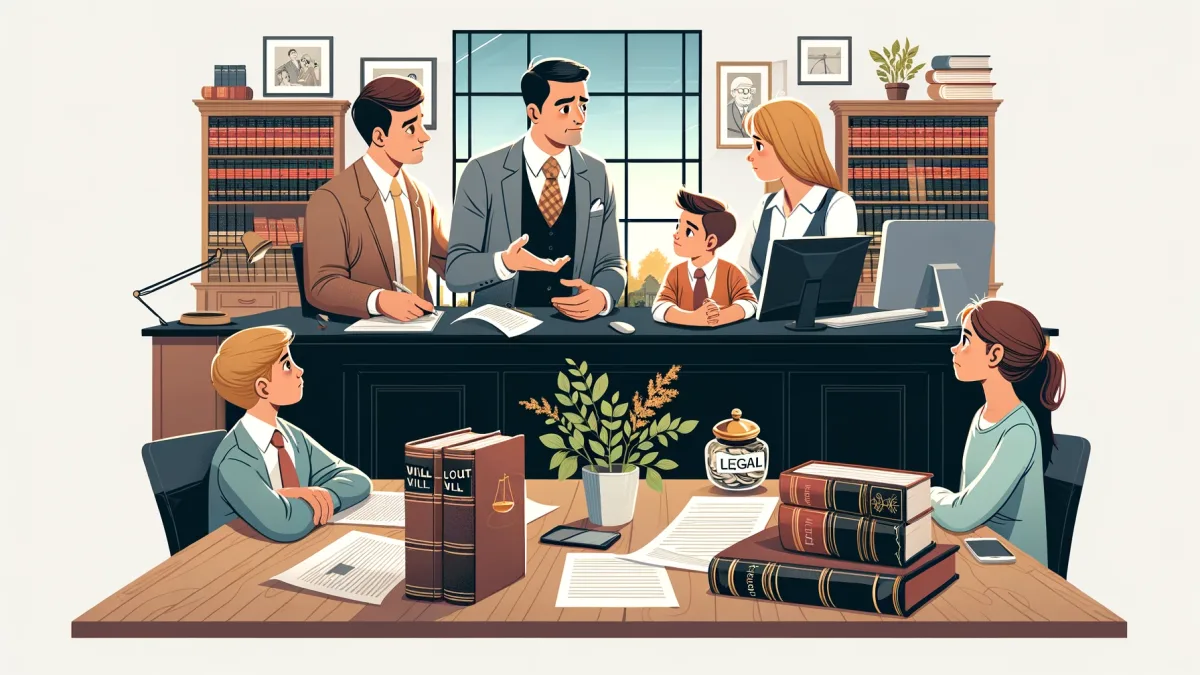In the labyrinth of estate planning and probate law, one question echoes through the hallowed halls of legal offices and family gatherings alike: What are the actual chances of successfully contesting a will? As a seasoned estate lawyer delving into this nuanced topic, I aim to shed light on the complex, often misunderstood process of challenging a will’s validity, navigating through myths to unearth the realities grounded in legal practices and judicial precedents.
Understanding the Grounds for Contesting a Will
Before we explore success rates, it’s crucial to grasp the legal foundations upon which a will contest can be built. Typically, challenges arise under several key categories:
- Lack of testamentary capacity: Questioning the decedent’s mental state at the will’s creation.
- Undue influence: Alleging manipulation by someone close to the decedent, swaying the will’s contents.
- Improper execution: Highlighting failures to adhere to state laws during the will’s signing.
- Fraud or forgery: Claiming the will was tampered with or entirely fabricated.
Each ground requires a unique blend of evidence and legal argumentation, setting the stage for a contest’s potential success or failure.
The Reality of Success Rates in Will Contests
Pinpointing an exact success rate for contesting wills is akin to capturing a wisp of smoke—elusive and varying widely depending on the specifics of each case. However, general trends offer some insights:
- A challenging path: Success in contesting a will is not guaranteed. The legal presumption in favor of a will’s validity sets a high bar for challengers.
- Evidence is key: Cases with substantial, compelling evidence against the will’s validity see higher success rates.
- Settlements abound: Many will contests resolve through settlements outside of court, skewing clear-cut success rate metrics. Settlements often reflect a strategic decision by parties to avoid the unpredictability and expenses of prolonged litigation.
Factors Influencing Success
Several critical factors can tip the scales in a will contest:
- Jurisdictional variances: Success rates fluctuate across different states due to variations in probate laws and judicial interpretations.
- Quality of legal representation: The expertise and strategy of the legal professionals involved can significantly impact the outcome.
- The strength of the contesting party’s case: The presence of concrete, unambiguous evidence supporting the grounds for contesting the will naturally enhances the likelihood of success.
Navigating the Process: What to Expect
Contesting a will is a marathon, not a sprint. Here’s a streamlined view of the journey:
- Initial assessment: A thorough review by an estate attorney to determine the contest’s viability.
- Filing a petition: Officially starting the contest through legal filings in probate court.
- Discovery: Gathering evidence, including witness depositions and document examination.
- Trial: Presenting the case in court, unless a settlement is reached beforehand.
The Settlement Factor: A Common Resolution
Settlements often emerge as a practical resolution to will contests. These agreements can provide a more predictable outcome for all parties involved, sparing them the emotional and financial toll of a trial. While settlements might not be seen as a “win” in the traditional sense, they represent a pragmatic pathway to resolving disputes, factoring significantly into the overall success rate of will contests.
The Role of Legal Counsel
The complexity of will contests underscores the importance of skilled legal representation. An attorney with a deep understanding of probate law and experience in will disputes can offer invaluable guidance, from evaluating the merits of a contest to navigating the intricacies of probate court proceedings.
Conclusion: A Case-by-Case Compass
While the quest for a definitive success rate in contesting wills may yield more questions than answers, it’s clear that each case is a unique voyage across the legal seas. Success hinges on a constellation of factors, from the solidity of the grounds for contesting the will to the legal acumen of the parties involved. For those considering this path, the first step is a consultation with an estate attorney, who can map out the journey ahead with clarity and strategic foresight.
In the ever-evolving landscape of probate law, knowledge, preparation, and professional guidance remain the beacons guiding individuals through the stormy waters of will contests. Whether you’re considering challenging a will or defending against a contest, remember that the journey is as unique as the legacy at its heart.









Leave a Reply